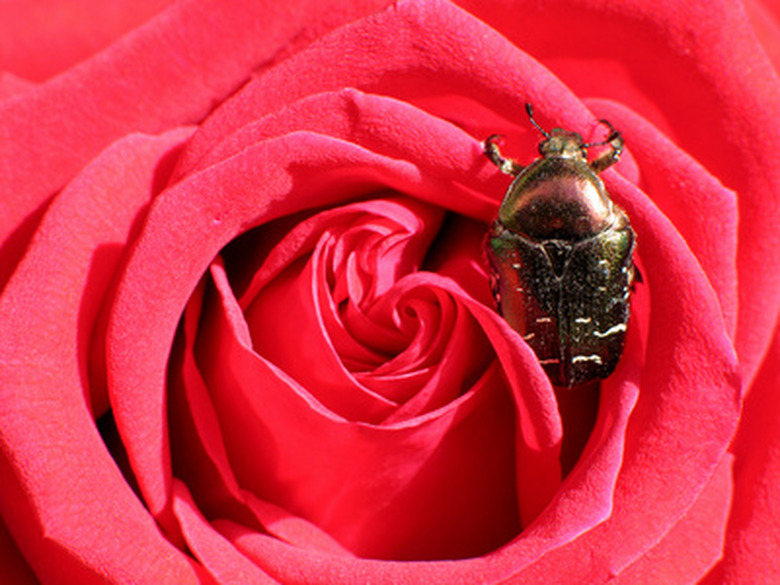Natural Insecticide For Roses
Insects can quickly destroy a beautiful rose bush. Unfortunately, many commercial pesticides can be hazardous to the environment as well as to humans and animals. If you want to control the pests on your roses without using toxic chemicals, you can try organic insect treatments.
If you use insecticidal soaps and oils in hot weather, you run the risk of burning the plant's leaves. Make sure that you spray early in the morning or on cooler days if possible.
Destructive Insects
Many types of insects can infest rose plants; however, the most destructive are aphids, spittle bugs (or frog hoppers), leaf hoppers, rose maggots (or rose midges), sawfly larvae (also called roseslugs), cane borers, cutter bees, gall wasps, scale insects, thrips, weevils and Japanese beetles.
Beneficial Insects
One of the best natural controls for destructive insects is to encourage or introduce beneficial insects into the rose garden. Ladybugs and lacewings will eat aphids, thrips and whiteflies. Parasitic nematodes, such as Steinernema carpocapsae, S. feltiae and S. glaseri, when introduced into the soil at the base of the plant, will infest and kill insects.
- Insects can quickly destroy a beautiful rose bush.
- If you use insecticidal soaps and oils in hot weather, you run the risk of burning the plant's leaves.
Manual Removal
Some insects, such as weevils and Japanese beetles, are best controlled by picking the adults off the rose manually and dropping them into a bucket of soapy water. This will remove the insect from the plant and will ensure that it does survive to reproduce.
Water Jets
Thrips, scale insects, spittle bugs and aphids can frequently be dislodged by powerful blasts from a spray nozzle attached to a regular garden hose. You should be careful, however, not to spray so hard that the rose plant itself is damaged.
Neem Oil
The oil from the Neem tree, which is native to India, is an effective organic pesticide. Neem oil works by smothering aphids and other insects. Since the oil must be in contact with the pests to work, you must be sure to completely spray all foliage, including the underside of all leaves.
- Some insects, such as weevils and Japanese beetles, are best controlled by picking the adults off the rose manually and dropping them into a bucket of soapy water.
Insecticidal Soaps
You can buy a plain commercial insecticidal soap or boost its effectiveness by mixing 99 parts of the soap to 1 part baking soda, which helps the soap stick to the foliage. You can also make your own insecticidal soap by mixing 1 to 2 tbsp. of liquid soap (NOT dish-washing liquid, but a castile soap) with 1 quart of water and using a spray bottle to apply it. You can make this mixture even more effective by steeping a handful of strong herbs such as garlic, onions, cayenne, jalapeno or horseradish in a quart of boiling water overnight, straining the herbs out and then using that to mix with the liquid soap.
